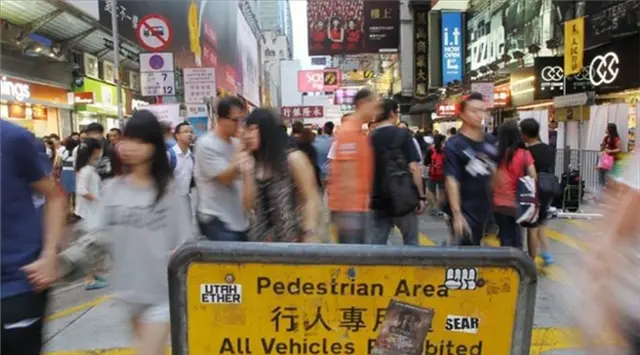Hong Kong’s leader has warned that a minority of people advocating independence will cost the city Beijing’s support and everyone will end up facing the political and economic consequences.
Before heading into his weekly cabinet meeting on Tuesday, Chief Executive Leung Chun-ying said talks of independence would also have an impact on investment in the city and dissuade mainland tourists from visiting.
“Seven million people in Hong Kong would have to pay for the cost of these political and economic consequences, which are caused by a small group of people,” Leung said.
The chief executive took it up a notch days after Secretary for Justice Rimsky Yuen Kwok-keung said the government was studying whether pro-independence advocates had broken any laws by setting up a new political party.
Leung sounded a hard-line note, saying: “No central government [in the world] would support a city that calls for independence.
“Investors would lose trust in Hong Kong. People in Hong Kong would lose development and employment opportunities.”
He went on to cite the example of Golden Bauhinia Square in Wan Chai as a “a must-see destination” for mainland visitors because it was “a gift from the central government to Hong Kong during the handover”.
“Mainland residents are highly concerned about the unity of the country and the handover of Hong Kong [to Chinese sovereignty in 1997],” he said.
“Therefore, if someone advocates independence or self-determination, it would seriously affect mainland residents’ desire to visit Hong Kong.”
Leung urged people to be aware of the impact of their actions and words on society’s interests, even if they were legal.
Legislator Gary Fan Kwok-wai, of the localist party, NeoDemocrats, accused Leung of trying to dodge the issue. “Obviously he wants to link the bad economy with the calls for independence, after previous empty threats about taking legal action against the Hong Kong National Party,” he said.
“Our justice minister and security minister have failed to say which laws the pro-independence activists have violated. Now the government has to shift to talking about the impacts on the economy.”
Veteran pro-establishment legislator Tam Yiu-chung, of the Democratic Alliance for the Betterment and Progress of Hong Kong, sympathised with Leung. “The tourism sector has been hit hard. If you were a tourist, you would not feel comfortable visiting a place where some people were hostile to you and wanted to cut ties with your country,” he said.
Economist Professor Francis Lui Ting-ming, of the University of Science and Technology, predicted that the quality of life in Hong Kong would revert back to that of the 1970s even in the highly unlikely event that Hong Kong was granted independence.
“There will be exodus of talents and capital. Hong Kong’s wealth could shrink by 90 per cent immediately,” Lui said. “Our import and export and logistics sector accounts for over 20 per cent of our GDP. If China cut trade ties with us, our GDP could immediately shrink by more than one-fifth.
“And not to mention the impact on the stability of our currency and that no overseas investors will take the risk to invest in our markets.”
In a statement, the pro-independence Hong Kong National Party argued: “The best way to protect the investors’ interest is to make Hong Kong an independent state.”
The party also dared the government to sue if it believed what independence advocates were doing was really illegal.
(SCMP)
 简体中文
简体中文

